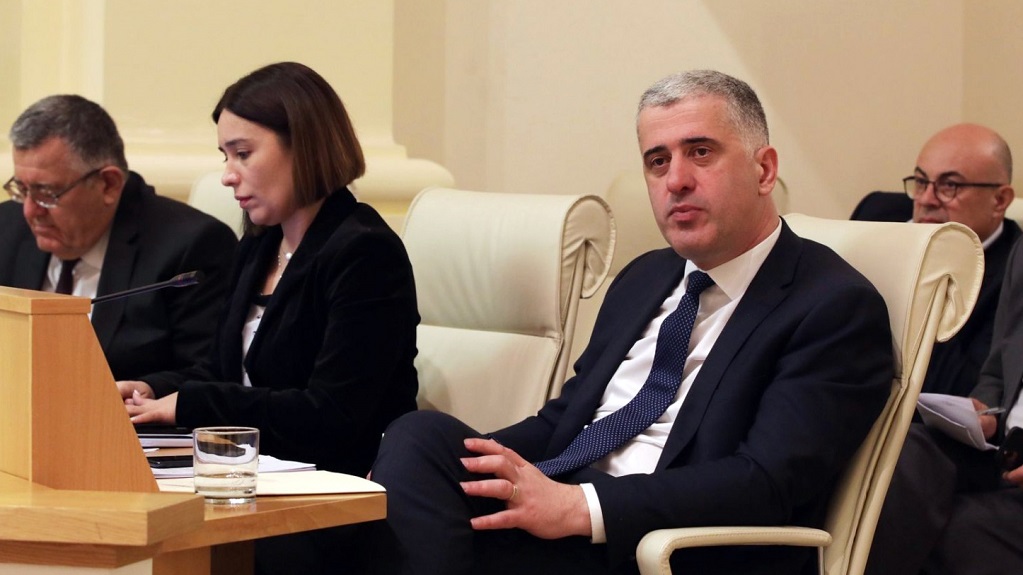Only yesterday, prior to the commencement of the final stages of the two-year court dispute, the Ministry of Environmental Protection and Agriculture provided us with the document it had concealed for two years in the case involving the transfer of Racha forests to Davit Khidasheli, the partner of the Russian oligarch. LEPL National Wildlife Agency, an agency of the Ministry, stated in a document that licenses for establishing hunting farms are issued blindly, and the farms created in the last twenty years have not yielded any positive results for the country. The letter also mentions that the action plans submitted by the current licensees cannot withstand criticism.
News
“The primary drawback of the legal environment is expressed in the issuance of licenses for establishing hunting farms without any prior registration and evaluation of the hunting fauna in the requested area, essentially done blindly.
Initially, a license is issued for a specific area, followed by discussions on game species and the presentation of management plans, most of which are fictitious and meaningless.
Consequently, the hunting farms established in the last twenty years have not yielded any positive results for the country, neither in terms of organizing hunting farms nor in terms of maintaining, increasing, or reintroducing and restoring lost or destroyed local populations and species. There has been no accurate description of species in the territories of existing hunting farms, nor is there any well-substantiated monitoring or reproduction of species taking place. Action plans and other documentation submitted by existing licensees cannot withstand criticism. Given the current reality, none of the licensees have been able to benefit from holding the license, achieve success in the mentioned business, or consequently, generate income and increase it. Licensees have virtually no leverage to protect species populations or designated areas, and conflicts with the local population are frequent.
The state has also not benefited - neither in terms of improving the condition of the animal world, particularly fauna species, nor in developing the industry, expanding income, or enhancing tourism potential.
To date, this business as a whole, if we can call it that, has been unsuccessful, primarily due to the scarcity and inadequacy of the existing legal framework.
Hunting farming should focus on hunting species and their populations, including their recovery and reproduction in natural or artificially modified conditions, as well as the promotion and protection of reproduction. Only after these considerations should removal quotas or selective/trophy hunting be allowed.
Obviously, it would be logical to first establish a legal framework, then conduct the recording and monitoring of medium and large species, and only then continue issuing licenses for hunting farms,” noted in the letter sent by the head of the LEPL Agency of Wildlife, Revaz Bezhashvili, to the Ministry and the National Environment Agency. The then Prime Minister Giorgi Gakharia signed the 134th decree of the government, approving license conditions tailored exclusively to the Khidasheli company, prior to which Khidasheli could not transfer 104,712 hectares of forest in Racha and Kvemo Svaneti for 49 years.
In the same letter, the LEPL Agency of Wildlife refers to HG Capra Caucasica LLC as a company with an international name and great experience, which ‘unlike other licensees, knows the field and its management very well.’ At this time, it was still not publicly known who was behind HG Capra Caucasica.’ Officially, the owner of the company is Global Victory Georgia LLC, which in turn is owned by Global Victory Investments Limited based in the United Arab Emirates. Mtis Ambebi investigated only after the sale of the license and revealed that the real owner of the company registered in Dubai is Davit Khidasheli, a partner of the sanctioned Russian oligarch Vladimir Yevtushenkov.
The National Wildlife Agency proposes to the Ministry to prioritize the reproduction, protection, and increase of hunting species and their populations, “rather than constructing footpaths and horse tracks, or hanging warning signs, or arranging ranger shelters, which any licensee will have to do in their own interests if they wish to create a more manageable management, which does not necessarily represent the fundamental interest of the state when issuing a license for the territory of hunting.”
On April 22, 2022, Mtis Ambebi first publicized the story of the transfer of Racha forests to a partner of a Russian oligarch. Green Alternative and the Racha community organization appealed the government's decision in court and demanded its cancellation. In July 2023, Mtis Ambebi published a journalistic investigation on the occupation of Racha forests. The investigation revealed numerous violations of the law and security-related issues, leading to the elevation of the issue on the political agenda and triggering several protests. On November 28 of the previous year, the authorities canceled the special license granted to Khidasheli.
“Is there any new information about the Racha forests, Mr. Davit?” asked members of the oppositional political party Droa two days ago, on March 6, after a meeting with the first deputy chairman of the parliament, Giorgi Volski. Khidasheli and Volski met in a cafe.
“You will find out soon,” replied Davit Khidasheli.















